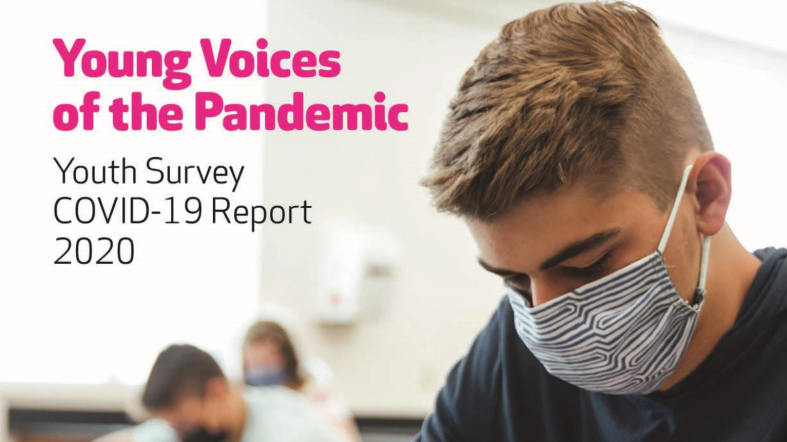The report draws on data from Mission Australia’s 19th annual Youth Survey of young people aged 15 to 19 years to provide unique insights from responses to the open-text question:
“In the past year, what is the biggest issue that you have been dealing with? What do you think needs to be done about it?”
Over 18,400 young people responded to this question with a range of concerns. One of the top three concerns was COVID-19, with many writing about the impacts on their education, being and feeling isolated and mental health. Amplifying young people’s own words, this report provides insights into how the COVID-19 pandemic has affected them and what can be done to help.
For young people 2020 was an especially challenging year. As one survey participant disclosed, “It has been pretty hard to stay motivated in schoolwork and life in general during the pandemic and quarantine…it has a ripple effect on other parts of my life”. At the same time, young people as the experts in their own lives have made a range of suggestions about action that should be taken to better support them.
This report has timely information that we hope will inform policy development at Federal and State and Territory levels.
Key findings
Mission Australia’s Youth Survey COVID Report 2020 reveals that young people who said COVID-19 was their biggest issue in 2020 were most concerned about the impact of the pandemic on their education, experience of isolation and mental health. The young people hardest hit by these issues were those living in Victoria, and 17-year-olds were most likely to say their education was severely impacted by COVID-19.
Impacts on education
- Young people frequently reported feeling stressed and worried about falling behind in studies, achieving poorer than expected grades or failing and worry about an uncertain future.
- Learning away from schools and at home was described as a key cause of disruption.
- COVID-19 created or intensified young people’s experiences of managing competing priorities and maintaining motivation.
Experiencing isolation
- Respondents overwhelmingly talked about feeling isolated and being separated from family and friends, with a small number also expressing the same worry for others close to them.
- Being in lockdown, quarantine and the loss of usual support mechanisms were key issues affecting feelings of isolation.
- Many young people noted restrictions negatively impacted on their ability to participate in sports, community activities or events.
Impacts on mental health
- Young people described feeling stressed about different aspects of their lives and how COVID-19 had either caused or intensified feelings of stress, experiences of anxiety and/or depression and led to poor mental wellbeing.
- Family related stress was raised around conflicts while confined at home, financial stress, missing families and homes when living away from home, family responsibilities while at home and worry over the wellbeing of loved ones and loss of loved ones.
- The inability to keep in touch and connected with friends and engaged in social activities was linked to poor mental wellbeing.
- There were some young people who reported serious mental health issues. A small number had difficulty accessing professional help.
Solutions offered by young people
- Supporting young people to help themselves when feeling overwhelmed and stressed with study, when feeling isolated and when experiencing poor mental wellbeing. Young people need resources that help them identify when they might be in need and to seek out formal and social supports in these circumstances.
- Schools are an important site for wellbeing and study supports and resources. This may come in the form of greater wellbeing (both targeted and universal) resources in schools that use both passive and assertive outreach, schools/service partnerships, as well as teacher and school support of teacher/student and student/student connection. In particular, young people doing final years of school during COVID-19 restrictions might require extra support to achieve educational goals, such as improved communication in online environments, a reduction in pressure and workloads and support and understanding around accessing tertiary education and post-school employment or further training.
- Government and service provision of mental health wellbeing supports. An increase is needed in the availability of services to support the mental wellbeing of young people. Governments and services should engage in mental health preventative and early intervention delivered in flexible formats to address wellbeing issues that may arise during isolation periods where young people are studying remotely and are less connected with their support networks than they would be under normal circumstances.
The full report is available for download here. To view Mission Australia's Young voices of the pandemic 2021 sub-report infographic, click here.
For more information please don’t hesitate to contact us at researchandpolicy@missionaustralia.com.au.



